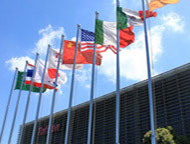

Surely we all drink the wine, its sweet taste glycol has been talked about for everyone, wine country on the market are formed under the influence of the fermentation tank, the domestic well-known brands, such as Cabernet Changyu, Great Wall Wine can also be divided into white and red wines, the fermentation process is mainly in the following two ways.
Open fermenter
The crushing, sulfur dioxide treatment, ingredient adjustments or adjustments grape pulp, pumped into the open fermentation tanks, fermentation tanks (tank) to a bucket capacity of about 4/5, while leaving space for about 1/5 of prevention fermented pomace out of the barrel, the best punch in a day together. Adding yeast culture are strong 3-5% or even 10% (by pulp meter), depending on the circumstances. Add yeast methods are: evacuation puree before adding yeast, can also be simultaneously sent to the pulp. After inoculation yeast, wait until a certain temperature controlled fermentation.
Closed fermentation
The pulp was prepared and cultured yeast into the closed fermenter (tank) to about eighty percent full. Placement of fermentation bolt, so the carbon dioxide produced by fermentation fermented bolt overflow. Ann has a barrel plate, pressed pomace will not in the juice. Plate may be disturbed, the carbon dioxide produced by the fermentation of surface scum accumulated in order to prevent oxidation generates volatile acids.
Advantages closed fermentation is less volatile aromatic substances, the higher the alcohol concentration, free tartaric more, less volatile acids. The downside is that the slow cooling, the temperature easily increased, but at low temperatures when advantageous.
Continuous fermentation
Performed using a continuous fermentor, feeding, the wine can continuous. Operating points for the first time: feeding, 20-30% of yeast added to the culture, to reach the lower part of the feeding bran separator. Fermentation can be carried out for about four days of continuous fermentation. Material inputs by 15-20 g / 100 liters addition of sulfur dioxide. After continuous fermentation, fermented and released daily time quantitative feeding, open the valve feeding the wine flows freely make fermented wine. In the feeding and the wine, while starting propeller inflow funnel through the pomace pomace separate wine press. After fermentation the wine can be a valve is closed, into the end of the wine fermented pomace will top out. Tank temperature should be maintained at 28-30 ℃, in order to facilitate normal fermentation.
Red wine tastes better, but the production process is slightly more complex, depending on the fermentation tank manufacturers, the historical value of the price of the fermenter will differ, and the year the older wines more collectible.